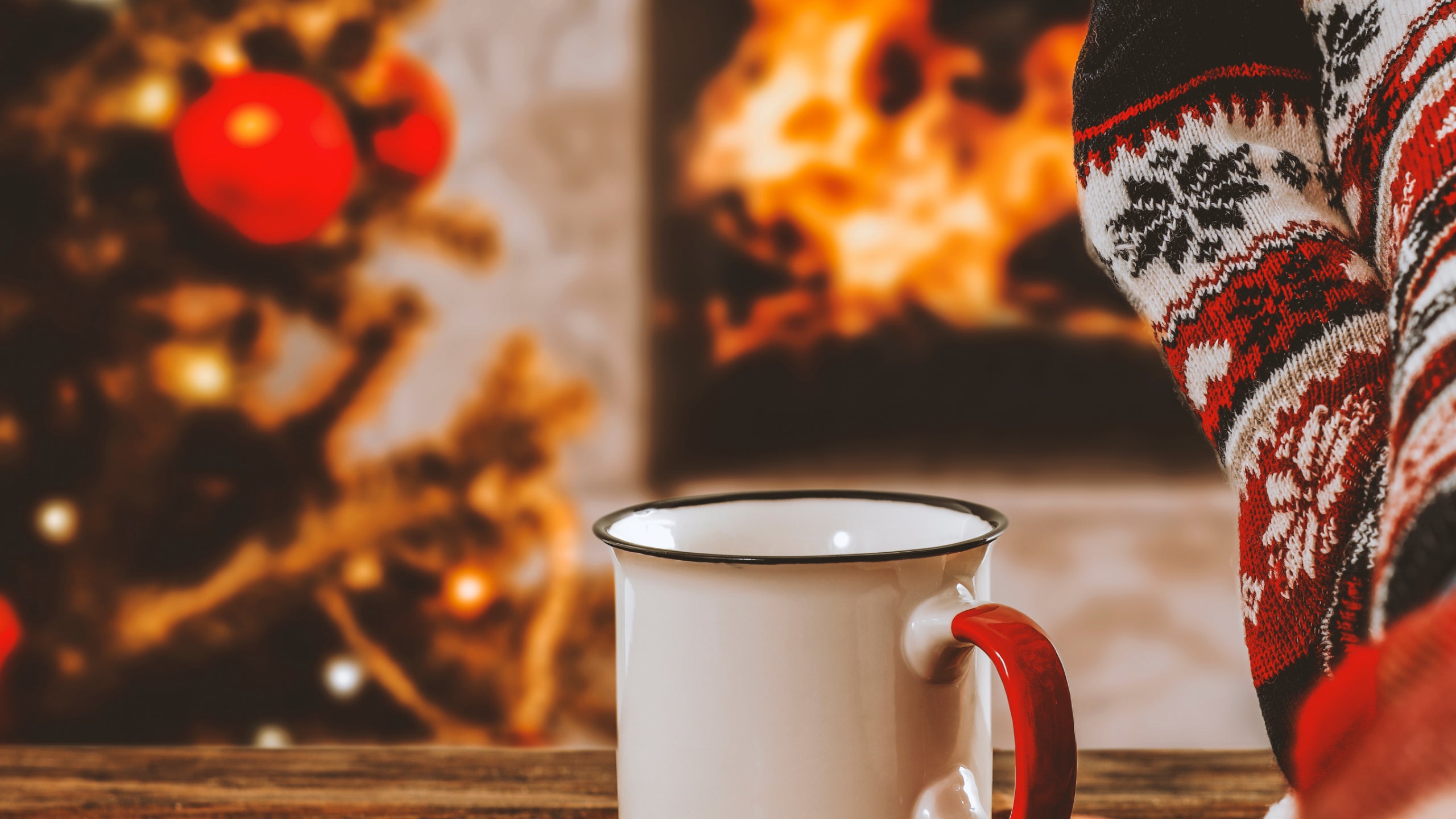Don’t let eczema flare-ups during the holidays spoil the merriest time of year. While the month of December is full of common eczema triggers, knowing what they are and how to combat their negative effects on eczema-prone skin can help you reclaim the joy of the season. If you find your eczema symptoms worsening during the winter months, here’s what to look out for.
7 Common Eczema Triggers During the Holidays & How to Prevent Flare-Ups
Common eczema triggers that are prevalent during the holiday season include:
1. Christmas Trees
Colophony, or rosin, is found in the sap of coniferous trees, which include pines, firs, cedars, and junipers. Colophony is a recognized allergen for causing contact dermatitis, a form of eczema.
To prevent the sap of your Christmas tree from causing contact dermatitis, avoid direct contact with the tree. Cover your arms with long sleeves and use gloves when it's necessary for you to touch the tree.
You may also want to consider an artificial tree if you’ve previously had an allergic reaction to colophony. May sure your artificial tree is properly covered and stored to avoid collecting dust, another common eczema trigger.
2. Holiday Stress
Shopping for gifts, changes in routine, meal planning, organizing grocery lists, and managing conflicts among extended family can cause higher levels of stress around the holidays. We know that stress is a trigger of eczema.
While you may not be able to eliminate all of the extra stress of the holiday season, you can help minimize its effects by getting enough sleep, meditating, finding normalcy in your routine, making time for activities you love, and talking to a trusted loved one.
3. Winter Weather & Turning on the Heat
Dry, cold air is a major culprit of winter eczema flare-ups. The air naturally has less water content during the cool winter months. Using indoor heating reduces the humidity in the air even more. To combat eczema flare-ups caused by dry air, cover up exposed skin when you’re outside. To increase the water content inside your home, use a humidifier.
4. Scented Candles
It’s tempting to prepare your home for the holidays with pine-scented candles or a cinnamon diffuser. However, it’s important to know that fragrances are a common trigger of allergic contact dermatitis as well as atopic dermatitis. Most often, a reaction to these scents appears on exposed skin, such as the face, hands, and neck. To avoid an unwanted flare-up, steer clear of artificial fragrances in candles, diffusers, and air fresheners.
5. Travel
Whether you’re staying at a family member’s home or headed to a hotel this holiday season, new environments can be packed with eczema triggers. Down pillows, sheets washed in scented detergent, pet dander, household dust, and foods that aren’t part of your usual diet can all trigger your skin to flare. To prevent flares while traveling, make sure to bring all your usual creams and medications. Avoiding using hotel toiletries. Talk to your host or your hotel about the detergent your bedding is washed in—and if you prefer to be on the safe side, consider bringing your own linens.
6. Holiday Sweaters
Before you put on that embroidered sweater for your next ugly Christmas sweater party, check the label! Sweaters made from wool and synthetic materials, such as polyester, often trigger eczema. Instead of these itchy fabrics, opt for pure cotton fabrics. If that ugly sweater is just too good to pass up, layer a pure cotton long-sleeve shirt underneath to protect your skin.
7. Cozy Fires
Sitting by the fireplace may be triggering your eczema (and your allergies and asthma too.) Why? Air pollution. We know that environmental irritants like smoke and indoor air quality both affect eczema. The wood that you burn in your fireplace or wood stove can contain mold, and the smoke and particulate matter from indoor fires can irritate your skin, especially if you have a weakened skin barrier. To mitigate the impact on your skin, be sure to get your chimney cleaned regularly, ensure that your flue works, and keep firewood stacked outside.
Celebrate the Season with Gladskin
Common holiday eczema triggers don’t have to mean missing out on seasonal fun. By making simple lifestyle changes, such as protecting your skin from cold air and dressing in loose, eczema-friendly fabrics, you can enjoy the holiday season.
Moisturizing regularly can be a big help for your skin this holiday season. We recommend Gladskin Eczema Cream with Micreobalance®, which is clinically proven to reduce eczema symptoms.
New to Gladskin? Learn about the science behind the first-of-its-kind eczema cream, or take our skin quiz to be matched with a customized skin care routine based on your symptoms!
